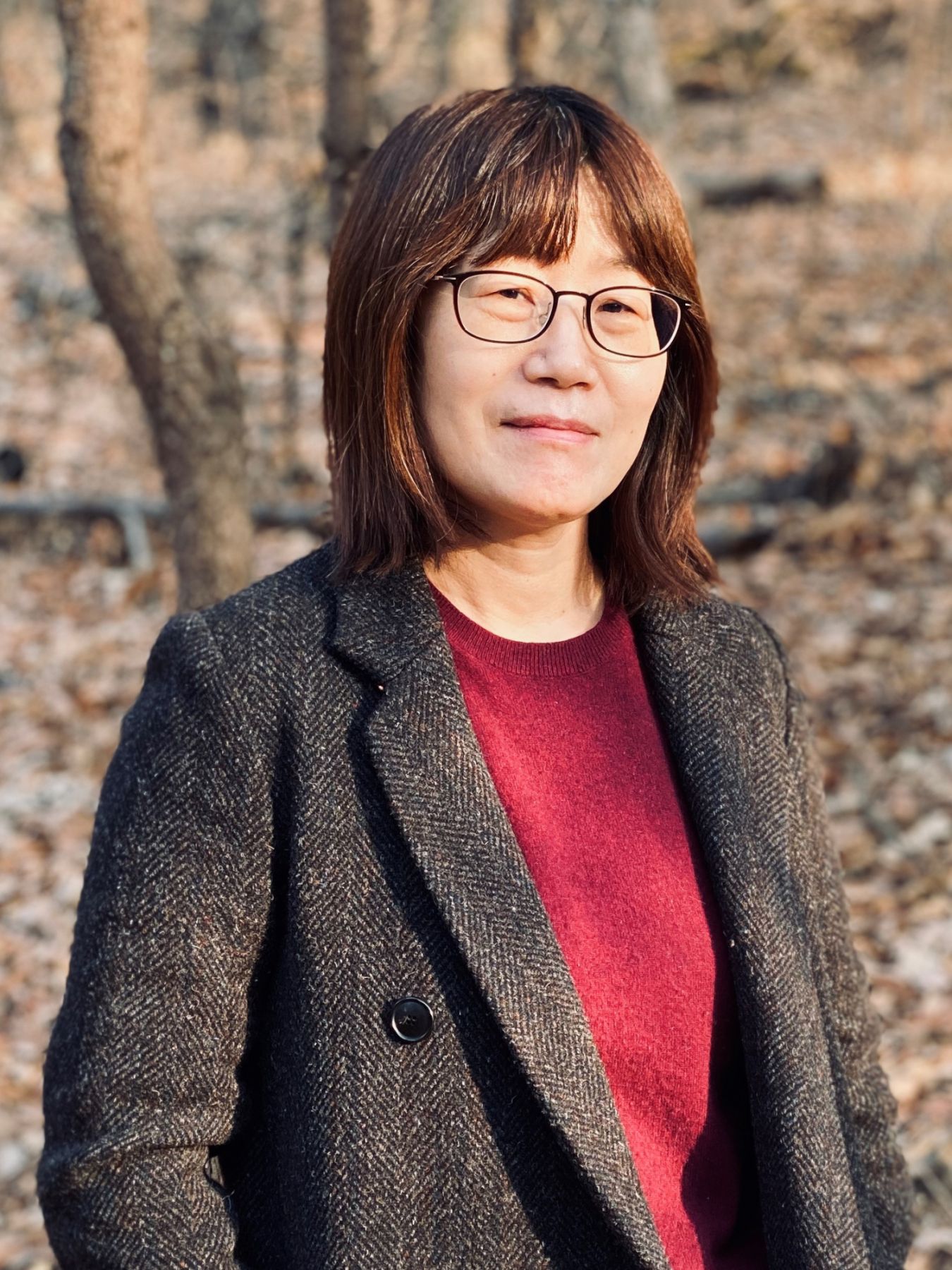Shin Su-won talks about shining a light on the realities of the female experience, the challenges of making a career change in her mid-30s, and working in the booming South Korean entertainment industry
Struggling to make it as a female filmmaker is a recurring theme in the movies of South Korean director Shin Su-won. It’s also something that she knows firsthand, as she made a career leap at age 34 by leaving a stable teaching role to pursue writing and filmmaking.
It had always been her childhood dream to go into the arts, originally as a painter. “My family did not like it, saying underprivileged people shouldn’t pursue the arts,” says Shin. After using a severance payment to fund her first film, Passerby#3, a decade later Shin has achieved success as an award-winning director, whose movies have premiered at the Cannes Film Festival and others.
Her latest movie Hommage has drawn comparisons to the Italian hit Cinema Paradiso for its depiction of a character enthralled by movies and, in this case, searching for her big break. After its screening at the Tokyo International Film Festival, we got the chance to catch up with Shin about how she pays homage to women through her films, the realities of unsupportive men and what it means to be a female director when South Korea's entertainment culture is booming. (Fun fact: Lee Jeong-eun, the star of Hommage, was the housekeeper in Parasite.)
Don’t miss: Meet Miky Lee, the South Korean Mogul Conquering Hollywood
As a female filmmaker in South Korea yourself, did you draw from your own experiences to make Hommage?
Some scenes were based on what I saw or experienced myself, and some were the results of creation and imagination. For example, the scenes where Ji-wan has quarrels over household chores with her husband intended to capture what working mothers in South Korea are generally experiencing.
In the past, I’ve also had similar conflicts, and we now share the chores among the family because I can barely do them when I’m busy shooting films. Ji-wan’s story of film restoration was also an element of creation, based on my past interviews with female directors.
In Hommage, there’s a line, “Sometimes I wished I was a man.” Why did you include that and what’s the significance of it?
I did research on the real-life editor who became the model for my film’s character. She was a film editor who had outstanding talents, but her career suffered from gender discrimination like what the character says in the movie. Also, director Park Nam-ok—the first female film director in South Korea—worked as a staff in the film production for a long time, but no one invested when she made the first feature The Widow, so she directed this movie while carrying her baby on her back and feeding the staff and her husband who was a writer.
The times are better now, but when I started my film career in my mid-30s, people said to me, “how on earth would a middle-aged woman like you make movies? You should just look after your family” or “women can’t be a movie director if they are over 40 years old.” Even after making films, I still had to fight against gender discrimination. Even now, I still sometimes think, “what if I were a man?”
The lead character in Hommage is surrounded by unsupportive men and the most she feels connected to is fellow female director, Hong Eun-won and her movie, A Woman Judge. Is this deliberate?
I did not intentionally portray the male characters in a bad light. I thought they could not fully understand Ji-wan’s concerns and conflicts after all. However, as you said, I thought the person she felt most connected to was Director Hong Eun-won, a ghostly being from the past.
Director Hong’s letter in the movie is actually adapted from her real-life essays and journals. While doing research on director Hong, I found her essays, and have felt a personal connection with her, even though I’ve never met her.
Director Hong made three films at a time in which there were almost no female directors, and her only remaining work to be known to us today is A Woman Judge. The movie, like other films of that time, opts for an ending that advocates male-centric family ideals. Nevertheless, I thought this was the only film from that time voicing criticism against the patriarchal system, from a female perspective, so I used some scenes of A Woman Judge in the movie.
Hommage focuses on the challenges of being a female filmmaker. But it’s also about passion, dreams, being left behind and forgetting. To you, what is the message of the movie?
Everyone is easily forgotten and abandoned in a world where all values are evaluated with just numbers and statistics, and divided into either “success” or “failure”. Ji-wan goes on an expedition in search of forgotten beings. Like the shadows, these characters in the movie live forgotten or shabby lives, but they all once shone.
I hope that the audience finds their own ‘light’ through Ji-wan’s journey in search of these beings, and also experience their own Cinema Paradiso (a 1988 Italian movie about a young boy falling in love with cinema).
Don’t miss: Meet Yim Soon-Rye, the Trailblazing Female Director of Korean Cinema








